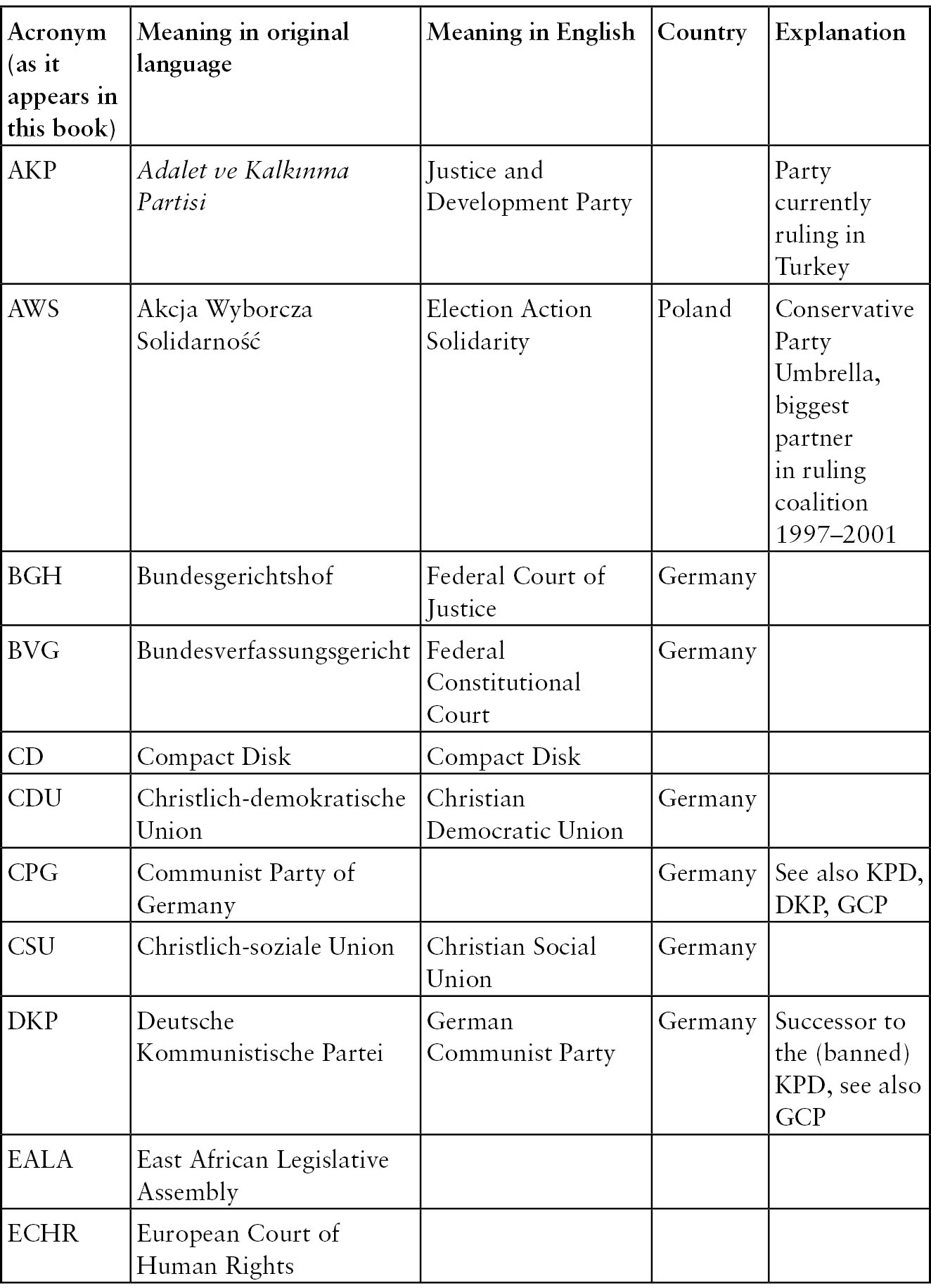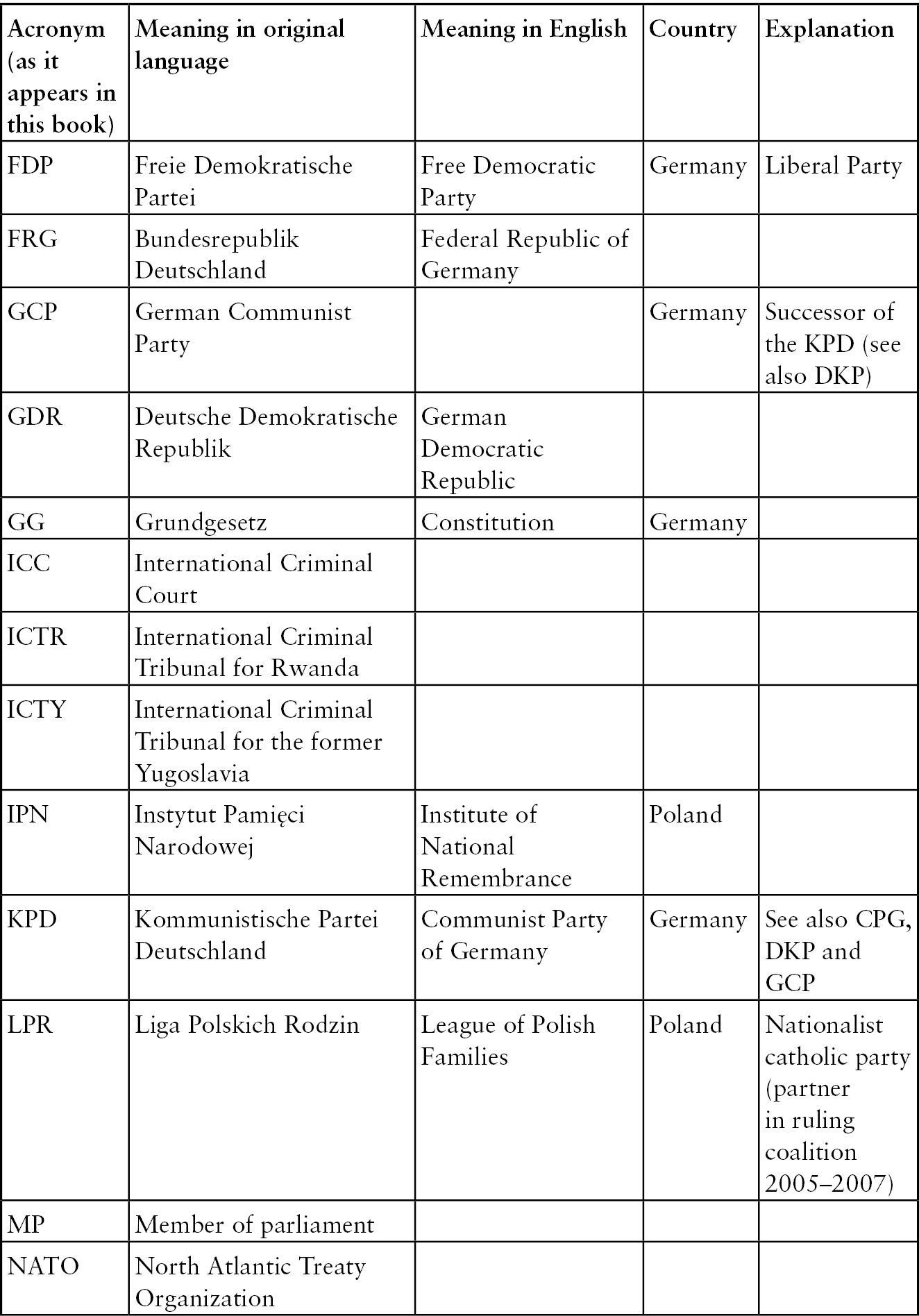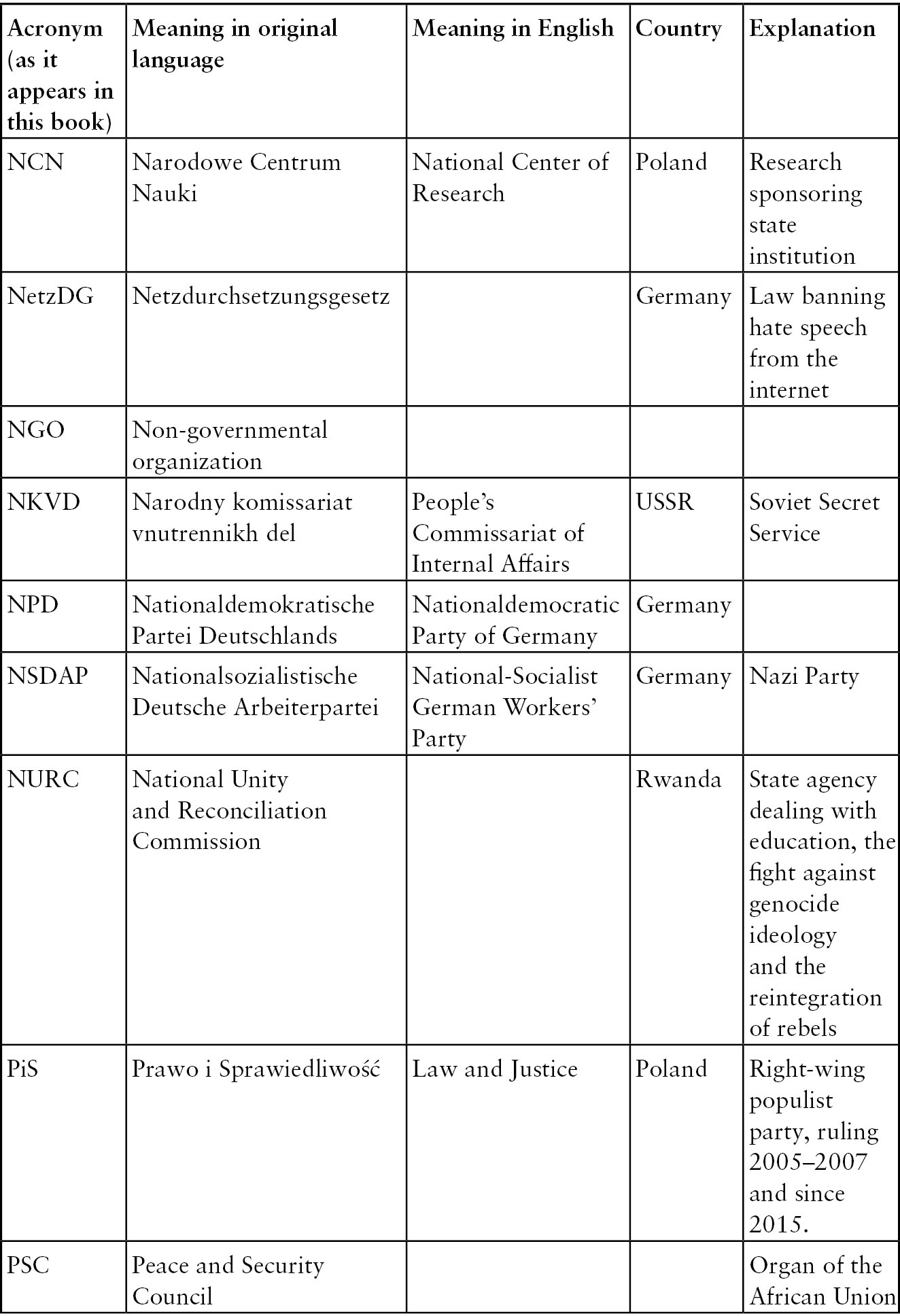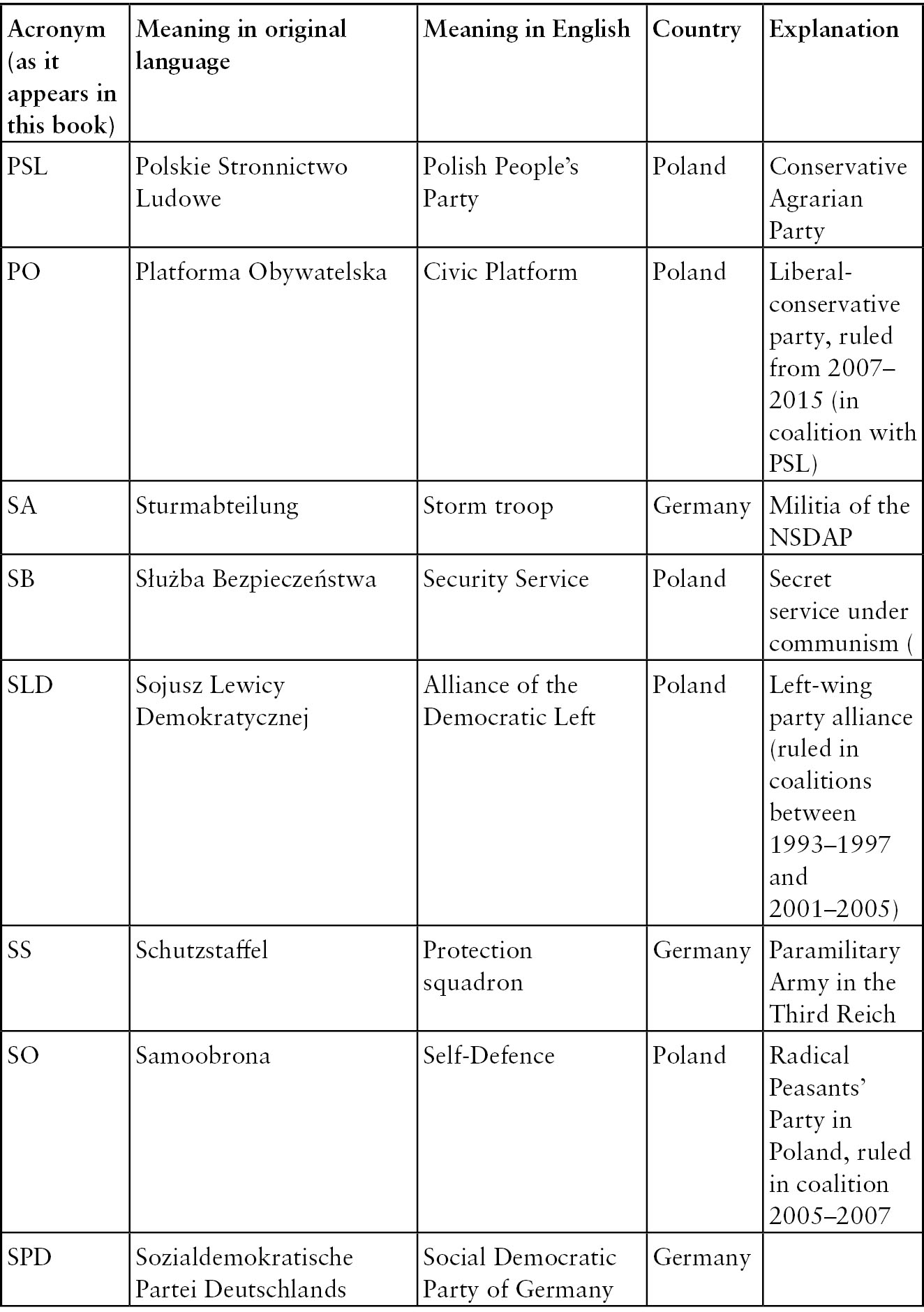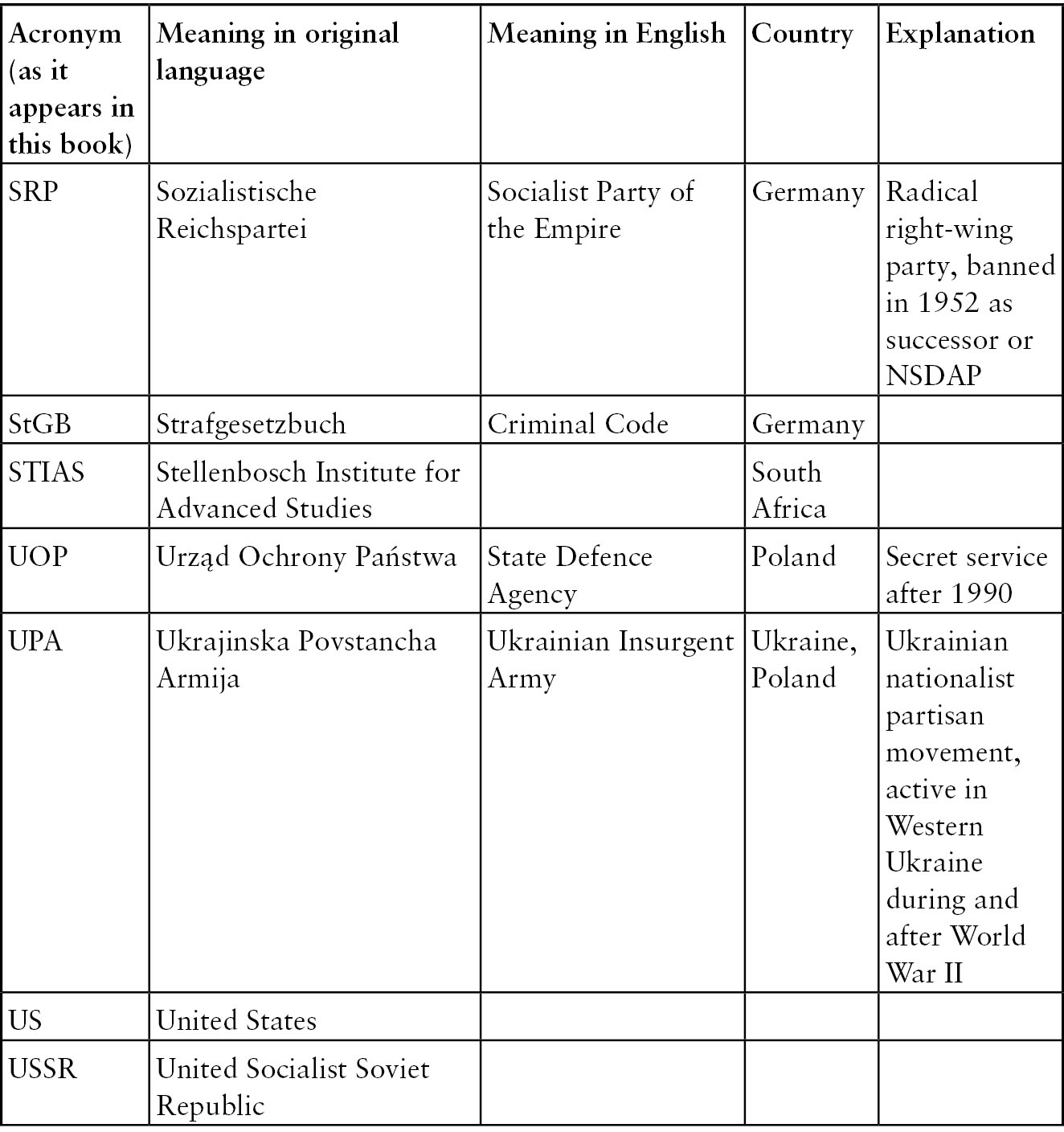Criminalizing History
Legal Restrictions on Statements and Interpretations of the Past in Germany, Poland, Rwanda, Turkey and Ukraine
Summary
Excerpt
Table Of Contents
- Cover
- Title
- Copyright
- About the author
- About the book
- This eBook can be cited
- Table of Contents
- List of Acronyms
- List of graphs, tables and statistics
- Introduction
- Acknowledgements
- Protecting the state and its historical identity: Klaus Bachmann
- Protecting the Nation’s Good Name: Klaus Bachmann
- Genocide Prevention and the Punishment of Genocide Ideology in Rwanda: Christian Garuka
- Memory laws in Turkey: protecting the memory of Mustafa Kemal Atatürk: Grażyna Baranowska
- Between heroes and perpetrators: Ukraine’s ambiguous legal approaches to the Soviet legacy and independence fighters: Igor Lyubashenko
- Freedom of expression and debates about history in the case law of the European Court of Human Rights: Ireneusz C. Kamiński
- Conclusion
- Note on contributors
- Index of names and notions

Klaus Bachmann / Christian Garuka (eds.)
Criminalizing History
Legal Restrictions on Statements and Interpretations of
the Past in Germany, Poland, Rwanda, Turkey and
Ukraine

Bibliographic Information published by the Deutsche
Nationalbibliothek
The Deutsche Nationalbibliothek lists this publication in
the Deutsche Nationalbibliografie; detailed bibliographic
data is available in the internet at http://dnb.d-nb.de.
Library of Congress Cataloging-in-Publication Data
A CIP catalog record for this book has been applied for at the
Library of Congress.
This publication was sponsored by the Polish Ministry of
Science and Higher Education in the framework of the project
“Criminalizing History”, BST3/2018D.
ISSN 2191-3307
ISBN 978-3-631-80957-0 (Print)
E-ISBN 978-3-631-81352-2 (E-PDF)
E-ISBN 978-3-631-81353-9 (EPUB)
E-ISBN 978-3-631-81354-6 (MOBI)
DOI 10.3726/b16640
© Peter Lang GmbH
Internationaler Verlag der Wissenschaften
Berlin 2020
All rights reserved.
Peter Lang – Berlin ∙ Bern ∙ Bruxelles ∙ New York ∙
Oxford ∙ Warszawa ∙ Wien
All parts of this publication are protected by copyright. Any
utilisation outside the strict limits of the copyright law, without
the permission of the publisher, is forbidden and liable to
prosecution. This applies in particular to reproductions,
translations, microfilming, and storage and processing in
electronic retrieval systems.
This publication has been peer reviewed.
About the author
The Editors
Klaus Bachmann is professor of social sciences at SWPS University of Social Sciences and Humanities in Warsaw, Poland. His research concentrates on International Criminal Justice, Modern European History and European Integration.
Christian Garuka is Lawyer and defence counsellor in Kigali, Rwanda.
About the book
Klaus Bachmann / Christian Garuka (eds)
Criminalizing History
Why do states ban certain statements and interpretations of the past, how do they ban them and what are the practical consequences? This book offers an answer to these questions and at the same time examines, whether the respective legislation was supply- or demand-driven and how prosecutors and courts applied it. The comparison between Germany, Poland, Ukraine, Rwanda and Turkey offers several surprising insights: in most countries, memory law legislation is supply driven and imposed on a reluctant society, in some countries it targets apolitical hooligans more than intellectuals or the government’s political opponents. The book also discusses, why and how liberal democracies differ from hybrid regimes in their approach to punitive memory laws and how such laws can be tailored to avoid constraints on free speech, the freedom of the press and academic freedoms.
This eBook can be cited
This edition of the eBook can be cited. To enable this we have marked the start and end of a page. In cases where a word straddles a page break, the marker is placed inside the word at exactly the same position as in the physical book. This means that occasionally a word might be bifurcated by this marker.
Table of Contents
List of graphs, tables and statistics
Klaus Bachmann
Protecting the state and its historical identity
Klaus Bachmann
Protecting the Nation’s Good Name
Christian Garuka
Genocide Prevention and the Punishment of Genocide Ideology in Rwanda
Grażyna Baranowska
Memory laws in Turkey: protecting the memory of Mustafa Kemal Atatürk
Igor Lyubashenko
Ireneusz C. Kamiński
Details
- Pages
- 182
- Year
- 2020
- ISBN (PDF)
- 9783631813522
- ISBN (ePUB)
- 9783631813539
- ISBN (MOBI)
- 9783631813546
- ISBN (Hardcover)
- 9783631809570
- DOI
- 10.3726/b16604
- Language
- English
- Publication date
- 2020 (March)
- Published
- Berlin, Bern, Bruxelles, New York, Oxford, Warszawa, Wien, 2020. 182 pp., 1 fig. b/w, 4 tables.

